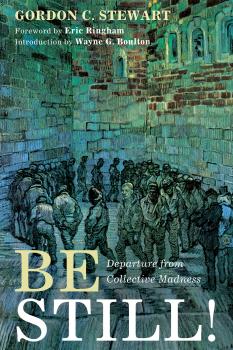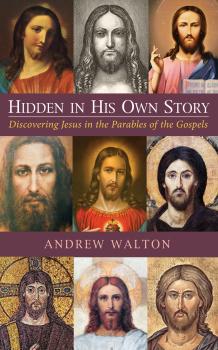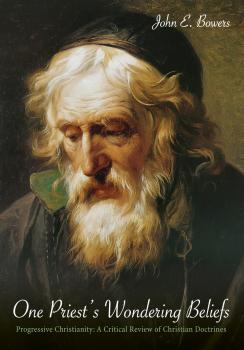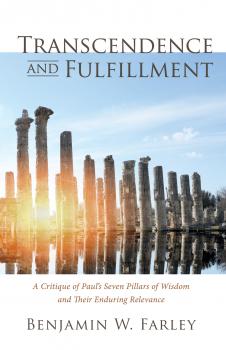ТОП просматриваемых книг сайта:
Религия: прочее
Различные книги в жанре Религия: прочее, доступные для чтения и скачиванияАннотация
Two rival analogies compete for our attention: the law of the jungle, and the sacred canopy. As for the former, life consists of the survival of the fittest. As for the latter, the divine mandates serve as a framework for social ethics. This is in keeping with the conviction that we live in God's world, by his grace, and for his glory. The first major segment consists of a paper trail, where the topic is explored in context of biblical narrative. The second discusses the four traditional mandates, as pertains to labor, family, government, and church. The third touches on the endowments, with reference to life, liberty, and the pursuit of happiness. All things considered, the text is calculated to contribute to a Christian world and life view. In greater detail, the mandates serve in a dual capacity. Obviously, to establish the credentials for select social institutions, but also by insisting persons to comply with legitimate social obligations. Meant to superintend God's creation, humans continue to fall short of their appointed task. Along with the diminishing of God's glory. Calling for a commitment to the divine mandates, and their extended implications.
Аннотация
Marriage is the most demanding and potentially rewarding relationship for many adults. Learning to navigate its challenges can be difficult. Staying One is a practical guide that not only teaches the spiritual what and why of marriage but also provides advice and practice in the how. Intended to save readers from the pain of learning the hard way, it illustrates and explains biblically sound approaches to building a healthy and fulfilling marriage that lasts. These include things married people should and shouldn't say to each other.
Staying One will prove useful to pastors in their pre-marital counseling and to the couples they are ministering. It will serve as powerful source material for marriage enrichment workshops, retreats focused on marriage, and church-based growth groups and adult education classes. The book will prove of special interest to engaged couples, newlyweds, those wanting to revitalize their marriages, and married people on the brink of divorce. A key feature is that each chapter concludes with a response from the author's wife, reflecting a woman's point of view.
We also offer a Workbook for use in completing the twenty hands-on activities contained in Staying One, as well as a comprehensive Leader's Guide for those facilitating workshops based on the book.
Staying One will prove useful to pastors in their pre-marital counseling and to the couples they are ministering. It will serve as powerful source material for marriage enrichment workshops, retreats focused on marriage, and church-based growth groups and adult education classes. The book will prove of special interest to engaged couples, newlyweds, those wanting to revitalize their marriages, and married people on the brink of divorce. A key feature is that each chapter concludes with a response from the author's wife, reflecting a woman's point of view.
We also offer a Workbook for use in completing the twenty hands-on activities contained in Staying One, as well as a comprehensive Leader's Guide for those facilitating workshops based on the book.
Аннотация
Do you remember? Do you remember those moments? Do you remember the moments that changed your life? On July 7, 2016, Jeff Hood was changed. Shots rang out in Dallas. Five police officers were killed. Nine officers and two civilians were injured. Hood was there. In many ways, he still is. There, organizing and speaking at the rally. There, standing in the middle of the pavement as the shots rang out. There, running down the street. There, trying to save lives. There, striving to stay on message. This is Hood's story . . . told through the verse he was able to construct in the days that followed the bullets.
Аннотация
Be Still! Departure from Collective Madness echoes the call of the Navajo sage and the psalmist who invited their hearers to stop–"If we keep going this way, we're going to get where we're going"–and be still–"Be still, and know. . . ." Like pictures in a photo album taken from a unique lens, these essays zoom in on singular moments of time where the world is making headlines, drawing attention to the sin of exceptionalism in its national, racial, religious, cultural, and species manifestations. Informed by Japanese Christian theologian Kosuke Koyama, Elie Wiesel, Wendell Berry, and others, the author invites the reader to slow down, be still, and depart from «collective madness» before the Navajo sage is right. Told in the voice familiar to listeners of All Things Considered and Minnesota Public Radio, these poetic essays sometimes feel as familiar as an old family photo album, but the pictures themselves are taken from a thought-provoking angle.
Аннотация
Salvation Story responds to Douglas John Hall's claim that the world is «waiting for gospel.» Humanity needs a clearer understanding that the gospel has come to redeem. The work of Rene Girard, an anthropologist, demonstrates that our human culture is founded on the concealing of its own violence in religious myths and symbols. Girard had hoped to enter into dialogue with Richard Dawkins, whose expertise is evolution, but this encounter never happened. Dawkins observed how evolution is blind, not unlike the blindness created by human myth and religion. Bringing together the work of Girard and Dawkins provides a lens for reading scripture. Salvation Story is written to challenge religious fundamentalists and atheists alike, as well as the rest of us–all those who realize that our current approaches to the Bible are woefully inadequate. This book digs into these ancient texts to discover what we have been hiding from regarding our own evolutionary inheritance, in order to discover the God who comes to save us from our own self-destruction.
Аннотация
Fictional stories speak to us in a way that is truer than real life. Even Jesus Christ, the greatest teacher of all time, regularly tapped into the power of telling completely untrue–and yet deeply true–stories. This book takes as its starting point the truth of the made up and uses one of the most popular story structures of all time–the Hero's Journey–and invites you to use this as the scaffolding for making meaning out of your own life. It is an invitation to storify your life, to get your bearings, to plot where you are. Are you being called to something? Are you enduring an ordeal? Are you enjoying the hard-won gains of a protracted struggle that is now finally over? By using this book's twelve-part structure you will gain more insight into what the threats and opportunities are at your particular stage of your particular adventure.
Аннотация
Hidden in His Own Story is an invitation to reconsider and re-imagine both the humanity and divinity of Jesus. It is an invitation to people who are not familiar with the Bible stories and have only heard them through other sources, also to many who have rejected traditional interpretations of the stories as religious dogma, and to many people who are so steeped in the stories that they have become cliche. Even the most clever storyteller or writer of fiction can never totally disguise or deny their personal influence on the story. And most of us have had the experience of someone beginning a story with, "I know a person who . . . " when in fact that «person» is the one telling the story. Why not imagine the same when Jesus says, «Once there was a man . . . ?»
Аннотация
This book is aimed at those Christians who have begun to question the conventional understandings of Jesus, and Christianity, and even of what we mean by «God,» and have become discomforted by the dissonance between their own thinking and the church's stance. A critical thinker by inclination and education, Jack Bowers explored Celtic Christian spirituality for a decade. That taught him there are other ways to live out the Christian faith than what we have been told by Rome and Protestantism. Upon retirement in 1998, no longer professionally required to reflect conventional theology, his belief structure began to wander, seriously re-examining all he had taught and believed. Having heard whispered rumors in younger years of priests «losing their faith,» instead he felt he was not losing his theology but growing it. This volume leads you through the evolution of his beliefs to what he can speak out with confidence right now, understanding that as he continues to grow and experience this world, and hopefully get a little wiser, his beliefs will evolve yet farther. He invites you into this challenging spiritual pilgrimage to discover what you can confidently believe in 2016 AD.
Аннотация
In today's polarized publics, we are rarely prepared to encounter one another peaceably and deeply across irreconcilable difference. A Companionable Way invites inquisitive minds, body-souls, and spiritual hearts into the delightful but demanding inner work required for peaceable encounters with integrity across interreligious and intercultural difference. Unmet yearnings and the unconscious refusal of deep feeling in so many of our cultures need redress, not only within scholarly-analytical habits of mind but also in aging communal «containers» not adept at holding deep feeling without harm. Ancient but 'new' containers today–webs of spiritual friendship and circle-way communities of practice–offer hope for new learning and formative encounters with difference toward an expressive delight able to companion the suffering of self and others. Part memoir of a deep-feeling academic, part toolbox for the curiously contemplative, A Companionable Way witnesses to the deeply rooted Sacred available to each of us in a return to the body, devotion in conscious love, and new ways of being human together across irreconcilable difference, held gently in a patient and living wisdom particular to each but needed by all.
Аннотация
Farley's Transcendence and Fulfillment captures one's immediate attention, especially with his designation of Paul's «Seven Pillars of Wisdom.» Readers will find his selection intriguing and illuminating. While being faithful to Paul's self-understanding and theological views, Farley offers a constructive and critical examination of the pillars' relevance for Paul's time as well as our own. The author blends biblical insight with a range of classical and contemporary philosophical opinion. In doing so, he draws on Plato and Cicero's wisdom, in addition to the critical works of Kierkegaard, Heidegger, Marcel, and Berdyaev. Students and professors of Paul's life and theology, along with clergy and lay admirers of Paul's views, will find Farley's book a useful resource for a provocative yet spiritually rich journey, true to Paul's teachings and of enduring relevance.










